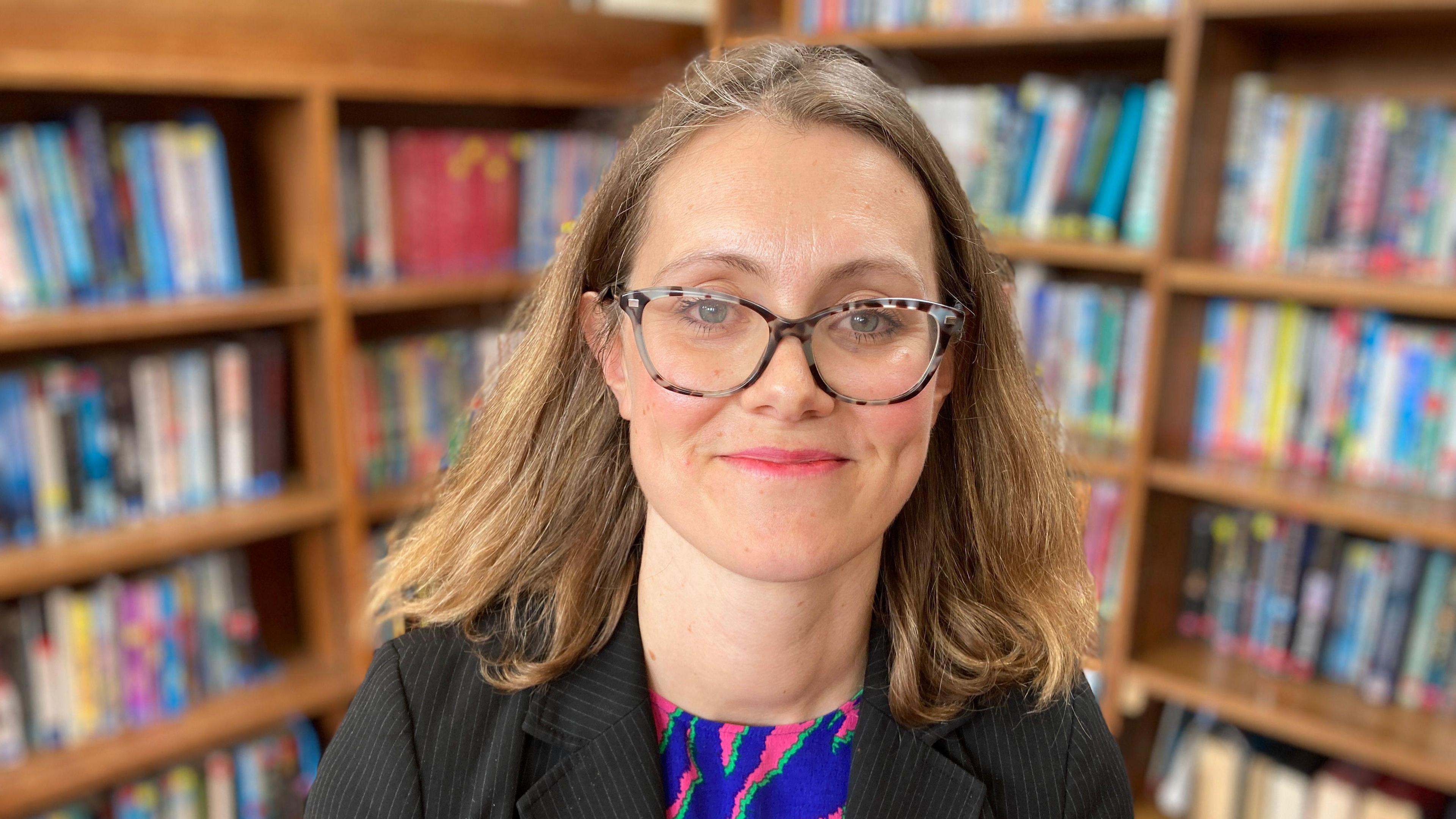Young people say smartphones 'almost essential'
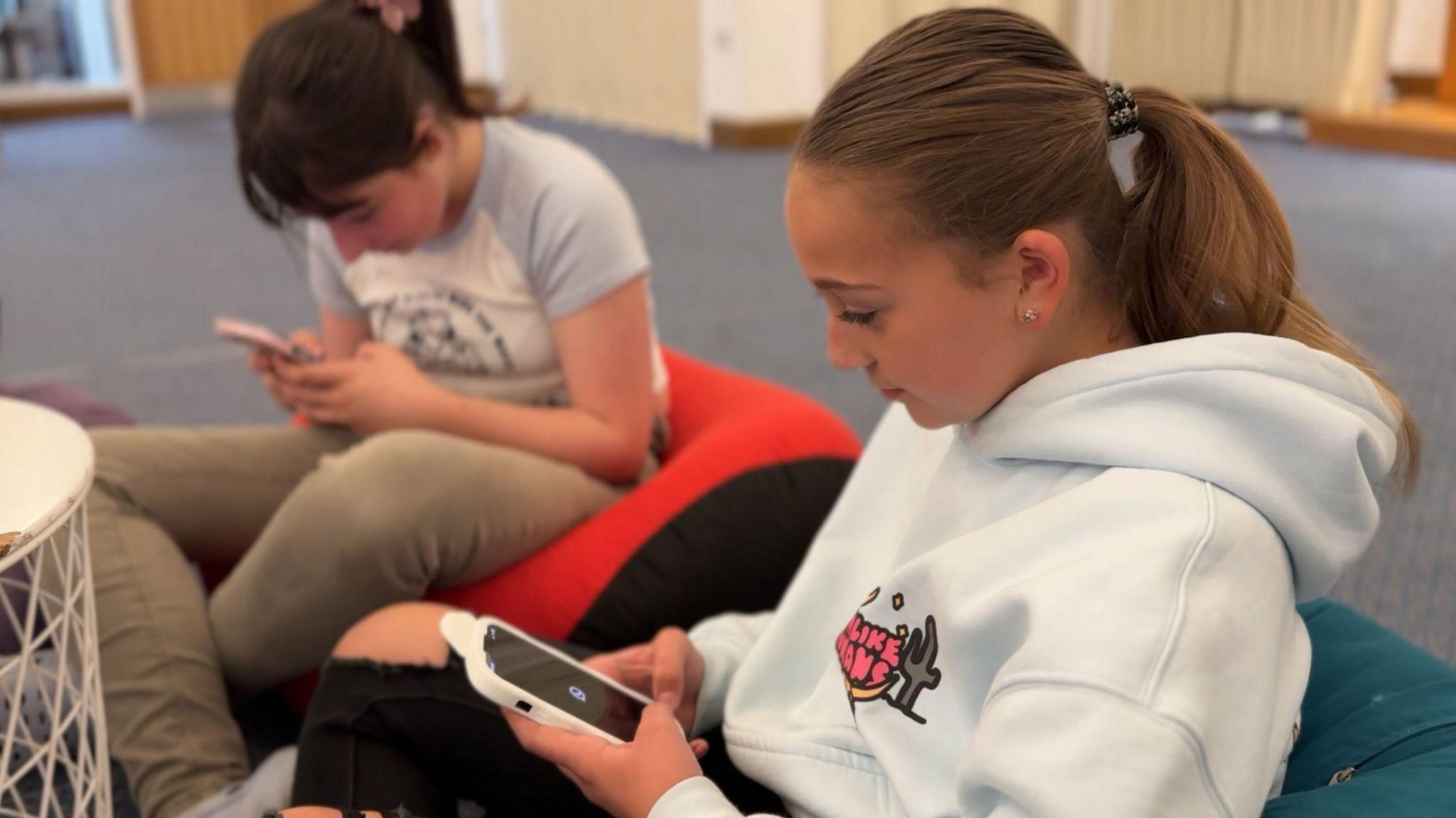
Ellie and Caitlyn's most used apps are Whatsapp and Snapchat
- Published
Young people have said the social pressure to have a smartphone has made them "almost essential".
In February 2024, Ofcom reported that nine out of 10 children owned a mobile phone by the time they reached the age of 11.
That is despite some experts warning parents smartphones can have a negative impact on their children's development and mental health.
At a youth group in Poole, Dorset, young people said their devices helped them stay in touch with friends and feel safer, but could also increase anxiety and peer pressure.
Looking at her screen time, 12-year-old Ellie said she had been on her phone for four hours and one minute that day.
"Today we had an inset day so I played Roblox and spoke to my cousin who lives far away," she said.
Ellie was 10 when she got her first smartphone, downloading YouTube as one of her first apps, but today she mostly uses WhatsApp and Snapchat.
"It is harder to talk to people without one," she said.
"I don't necessarily want to stay in the groups they are adding me to, because sometimes they don't say very nice things."
'Fear of missing out'
But she said trying to leave group chats could provoke a negative response.
"They say let me re-add you or you are not my true friend," she said.
Ellie said she also found it easier to communicate using her phone because she could delete a message or voice note if she changed her mind about what she had said.
"In real life you can't delete the messages, because they would have already heard what you said."
Asked if she would prefer to live with or without her phone, Ellie replied: "I would keep it, because if there was an emergency I could call or message whoever I needed."
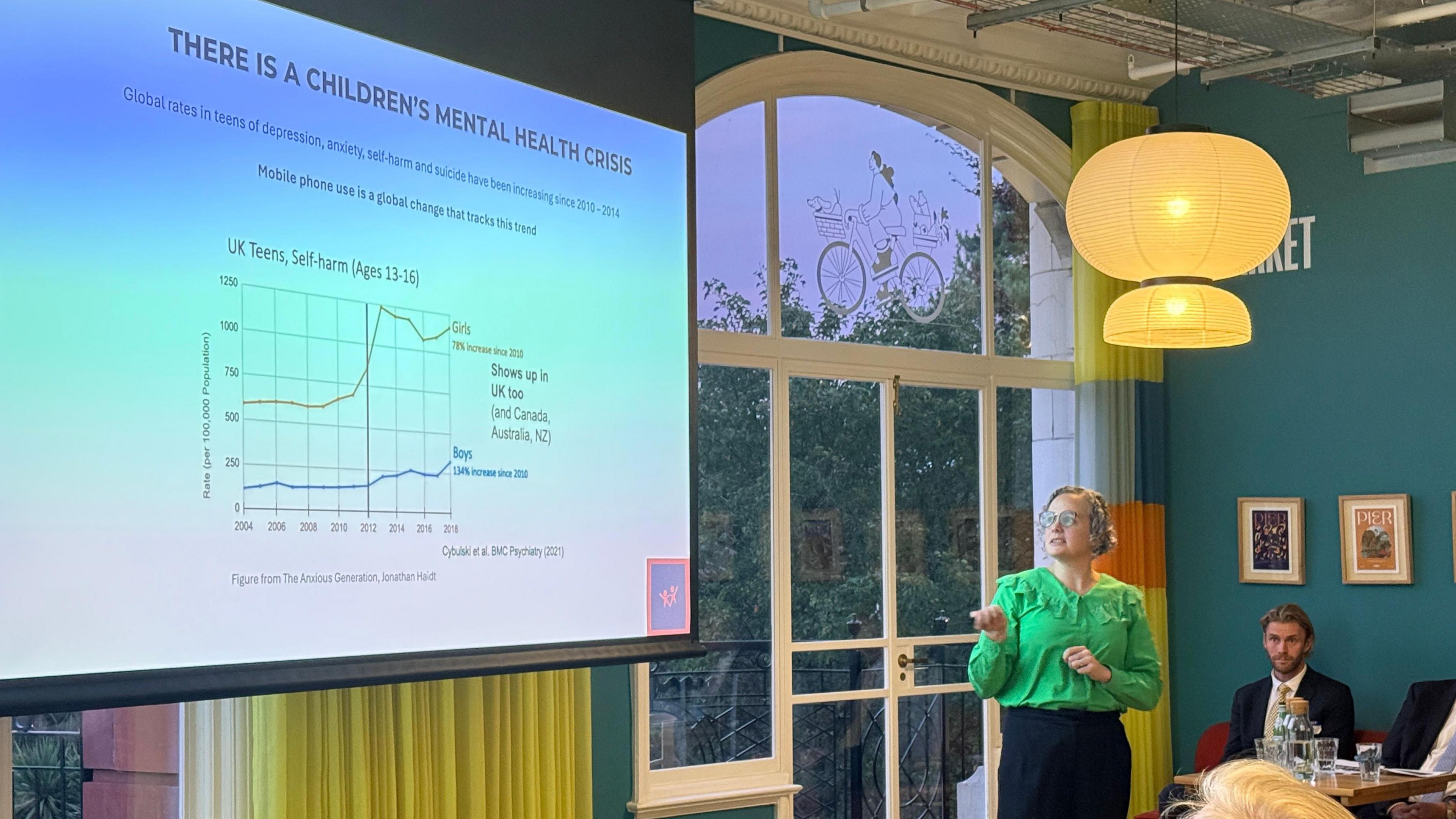
Dr Helen Thomas was one of the panellists at the Smartphone Free Childhood event
Dr Helen Thomas is a GP from Hampshire who is the author of the NHS's digital health training and a member of Health Professionals for Safer Screens.
She was one of the panellists at a Smartphone Free Childhood event that included the Dorset Police and Crime Commissioner, a gamer and a teacher.
She said parents should not give their children smartphones until they were at least 16, otherwise "their mental and physical health, developmental and social skills will be hugely impacted".
Fifteen-year-old Liberty said having a phone gave her a fear of missing out, or FOMO, because she did not socialise a lot outside of school.
She said: "Scrolling through your posts and seeing that they are having so much fun while I am stuck at home watching a movie or something boring."
Instagram is the only social media platform Liberty is on, and she has a screen time limit because it reminds her to put the phone down and take a break.
She said she felt like it was "almost essential" to have a phone.
"For example when you are on school trips and on the coach the teacher will say to text your parents that we are going to either be early or late," she said.
"They are assuming that you have a phone and I didn't until recently so I had to ask my friends to text my parents."
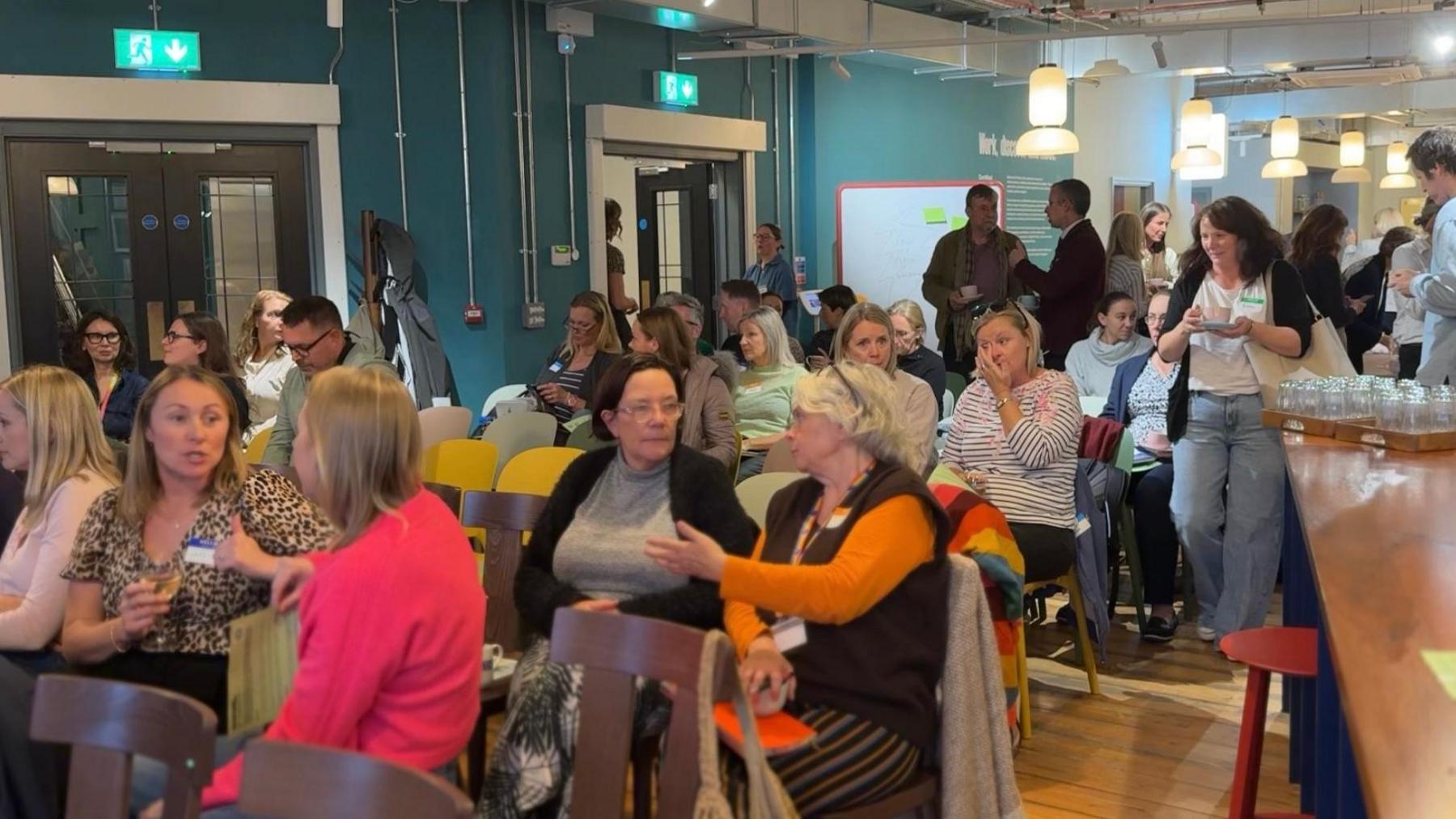
Parents and local educators were invited to the event
Dr Thomas said she often heard similar stories, and "as parents you have the power to make and reverse a decision".
She said: "Parenting is hard and reversing a decision is super hard but in the long term it will work out better."
"It is about having those open an honest conversations with your children."
Dr Thomas said she was aware that teenagers and young people were using social media to connect with others.
"That is great because they can find their team and likeminded people and feel connected," she said.
"But the real world immediate impact is that people don't know how to communicate with each other."
She said that in five years time, it could have an impact on those teenagers' careers.
"Young adults will go into workforces that don't seem to be able to work in the same way that employers do today."
Although she added: "I think there are some things like turning up on time, understanding responsibilities, completing tasks, being a team player and communicate will always be a part of what a work force is."
She advised parents to buy their children brick phones, as an alternative to smartphones, or start a tech-lite group like Phone free Fridays.
Get in touch
Do you have a story BBC Dorset should cover?
You can follow BBC Dorset on Facebook, external, X (Twitter), external, or Instagram, external.
Related topics
- Published30 September

- Published4 March 2024
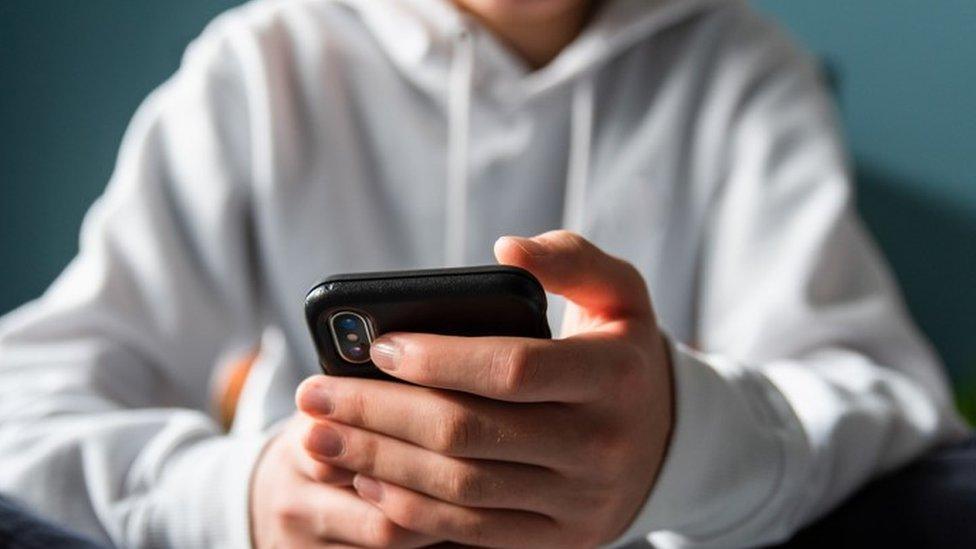
- Published1 July
